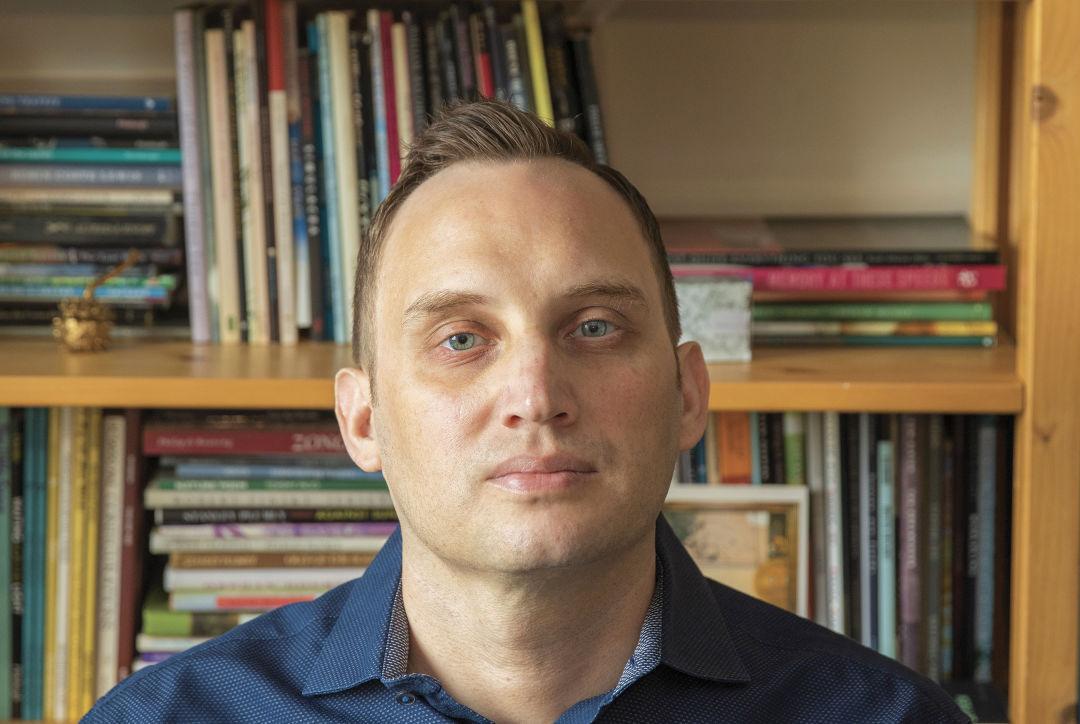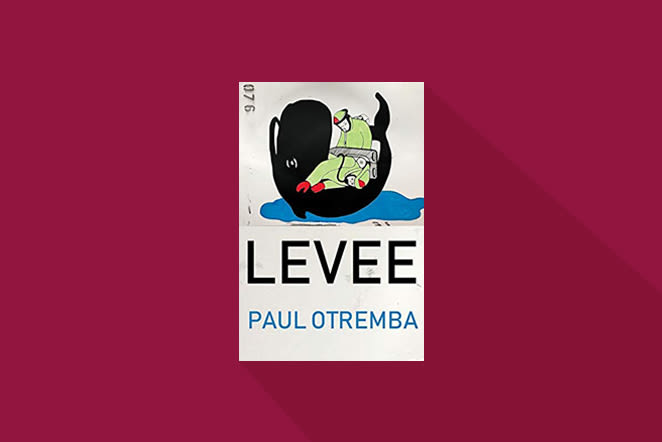Levee Confronts Existential Anxiety With Paul Otremba's Most Potent Poetry

Image: Madi Girault/Four Way Books
In his most recent author photo, Paul Otremba’s electric blue eyes pierce the camera lens, and his lips sit pursed in a state of seeming quiet.
Nothing about that serene portrait betrays the fact that the Rice professor turned in his final collection of poems, Levee, in the throes of stomach cancer. Likewise, nothing in the brief author bio mentions the aggressive illness that took Otremba’s life this summer at the age of 40, mere months before the book’s September release.
Reading the finished product, one gets the sense of a man looking beyond the limited scope of human experience to contemplate something grander and perhaps more terrifying. “It’s a luxury to be this calm,” Otremba writes in the opening poem as he peers out into Houston’s “oil-fed night sweats.” Levee—set in and around the Ship Channel, lush greenery, and crawfish boils of the Bayou City—is a thoughtful, sometimes ironic work that examines living in a time besieged by climate change and perpetual violence in a place forged from industry and greed. It’s also some of Otremba’s most personal work, drawing, as it does, from the poet’s own confrontation with mortality.
“He used his own illness as the background and metaphor for the illnesses of the world,” explains Otremba’s wife, Holly Holmes.
The couple were introduced by a mutual friend in 2008 when Otremba, a Minnesota native, was pursuing his PhD at UH’s creative writing program. A medical doctor herself, Holmes was also something else: a reader of poetry. They married in 2011, although there were never any love poems, Holmes says. Instead, Otremba’s typical output drew from varied preoccupations with current events, Buffy the Vampire Slayer, and nature. Many readers liken him to 19th-century Romantic John Keats, although others reject the parallel.
“To be quite frank, I dislike this comparison mostly because Keats died nearly 200 years ago, and comparing Paul to Keats makes him seem in some way old-fashioned or out-of-date,” says Lacy Johnson, a close friend, writer, and colleague at Rice. “Paul was a poet of this moment.”

Image: Madi Girault/Four Way Books
Holmes says it’s unclear exactly when Otremba embarked upon writing Levee, but it had to have been around summer 2014, when their Houston home was inundated by a flash flood just as the country was thrown into upheaval by the killing of Michael Brown in Ferguson, Missouri. As the two watched the news, they “obsessively worried about the world” and their place in it, full of the apprehension that would seed some of the book’s first ideas.
“There is a side of him that was completely unflappable and always very composed,” she says, “but his very good friends understood a side underneath it that was full of anxiety and unrest. He reconciled that in his writing.”
Yet it was often difficult for Holmes to discern when her husband was doing his work. Unlike her own gig as a doctor of geriatric and palliative medicine, Otremba’s job was stop-and-start, occurring in unseen moments of the day. Much of his visible efforts were expended teaching and mentoring at Rice. He was also an excellent chef.
Near the end, the progression of Otremba’s cancer made it increasingly difficult for him to think clearly. His brother, Matt, helped marshal the pages for Levee, along with generous input from family and friends, and for a while things looked up; Otremba had every intention of seeing this book on shelves when it came out this month. Instead he died at home on a cool evening in late June.
Early reviews for Levee praise Otremba as “an essential voice of his generation,” and Holmes, for what it’s worth, calls it the best of his three published books—startling, timely, and insightful in its observations. “Paul was always paying attention to the world,” she says. “I only hope that the book is really received and processed in the way that it deserves—that people not only read it, but are inspired and influenced by it.”




